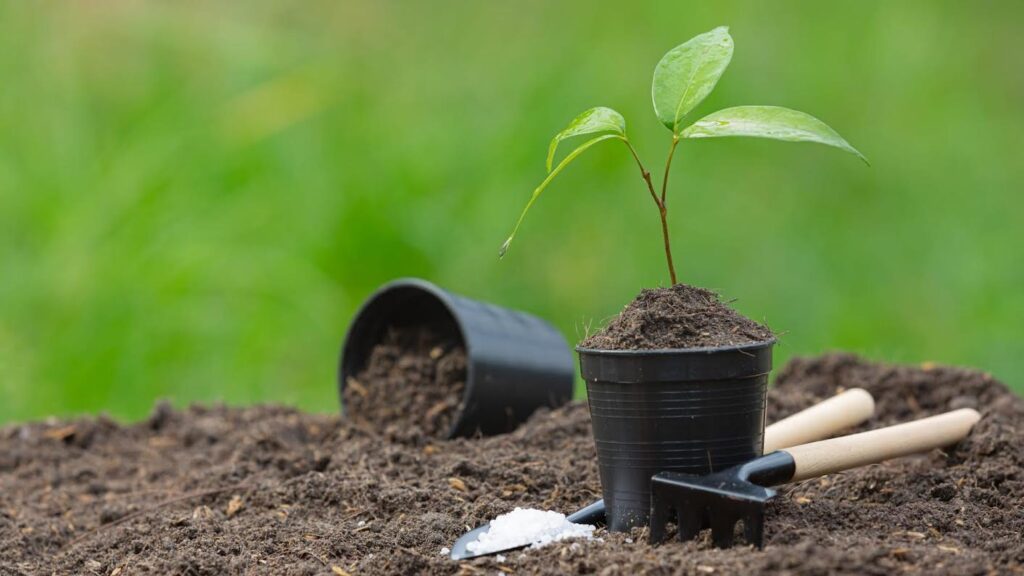 • Experts chart new course in plastic treaty implementation
• Experts chart new course in plastic treaty implementation
• Stakeholders urge collective action
A professor of Ecotoxicology and Environmental Forensics, Igbinedion University Okada (IUO), Prof. Lawrence Ezemonye has advocated the use of technological innovations to manage plastic waste crises in the country.
Ezemonye, who is the university’s Vice Chancellor, made the call during the university’s College of Natural and Applied Science yearly lecture, which coincided with the World Environment Day (WED) held in Okada, Edo State, said Africa generated plastic waste of approximately 8.5 million tonnes out of 380 million tonnes of plastic waste globally.
He, however, said that the use of technological innovations such as plastic buyback programmes, circular economy, plastic waste creativity and energy recovery strategies would mitigate the crisis.
Speaking on ‘Solving Plastic Waste Problems through Strategies and Innovation’, he said, plastics pose environmental pollution problems if not managed and called for collective action to stem the menace of plastic pollution in the wake of rapid industrialisation and urbanisation.
He disclosed that Africa generated plastic waste of approximately 8.5 million tonnes out of the 380 million tons of plastic waste generated globally, making it a major contributor to the global plastic waste crises.
The vice chancellor noted that about eight million tonnes of plastic waste find their way into the ocean, which he said was equivalent to dumping garbage trucks full of plastic into the ocean.
Africa’s plastic waste generation has reached critical levels and needs urgent attention using technology and innovations. “Nigeria generates approximately three million tons of plastic waste yearly, making it the highest plastic waste generator in Africa, posing a severe threat to the environment and the entire ecosystem.
“The rapid population growth, urbanisation and the increasing consumption patterns have contributed to the surge in plastic waste generation in Nigeria. Plastic waste also contaminates the soil, disrupts agricultural productivity and poses risk to our food value chains,” he said.
He said the outcome of the lecture would stimulate further interrogation and provide the impetus for the achievement of the Sustainable Development Goal No.15, which is geared towards making life more comfortable on land.
Also speaking, a professor of Environmental Microbiology and Director of Centre for Environment, Lancaster University, Prof. Kirk Semple, said one of the major causes of deaths across the globe was pollution.
Semple said pollution was a global phenomenon with higher rates in third world countries and noted that pollution contaminates the soil, which invariably has a negative impact on agricultural products.
He recommended continuous sensitisation of the public and adoption of environmental best practices to mitigate pollution.
Earlier, the Dean, College of Natural and Applied Sciences, Prof. Longi Anyanwu, described the lecture as being apt and urged the students, as well as stakeholders to make best use of the lecture outcome.
MEANWHILE, experts have called on the Federal Government to urgently put in place legislations that would facilitate the implementation of the global plastic treaty agreed by UN Member States two years ago.
The experts, who spoke at 2023 WED in Abuja, also said the adoption of a comprehensive zero plan would address all forms of waste at source of generation and across all value chains.
They reaffirmed that addressing the plastics production reduction at source remains a fundamental part of the efforts to reduce greenhouse gas emission, build resilience and solution to climate change.
The Chairman, Nigerian Institution of Environmental Engineers, Sesan Odukoya, stated that the proliferation of plastic waste has reached alarming levels and its detrimental effects on ecosystems are increasingly evident.
According to him, there is tremendous opportunity amid the crisis, such as the economy of plastic recycling and reuse, saying, this is an environmentally friendly and sustainable way of managing plastic waste.
“It presents an opportunity to tackle plastic pollution, create green jobs, promote sustainable growth and protect the environment for future generations, which holds immense promise for Nigeria,” he said.
Speaking, Dr. Edith Ishidi of Sheda Science and Technology, argued the high level of plastic pollution in many countries is a fact that cannot be contested, hence, the insinuation that it might cause health issues for the people and aquatic lives due to irresponsible plastic waste disposal.
Dr. Christopher Kato of University of Abuja, said plastics including micro plastics are now ubiquitous in the natural environment. “Around the world, one million plastic bottles are purchased every minute, while up to five trillion plastic bags are used worldwide every year. In total, half of all plastic produced is designed for single-use purposes,” he added.
IN a related development, stakeholders have been urged to collaborate through special schemes and projects for environmental sustainability.
They made the call at an event organised by African Development Bank (AFDB) in collaboration with the Ivorian Ministry of Environment and Sustainable Development, the United Nations Environment Programme (UNEP) and the Netherlands to mark this year’s WED.
The forum entitled: ‘Solutions to Plastic Pollution,’ rallied over 300 people to discuss why Africa should shift towards the circular economy and what the opportunities are.
Côte d’Ivoire’s Minister of Environment and Sustainable Development, Jean-Luc Assi, restated the country’s ban on the production, import and marketing, possession and use of plastic bags.
He said the ban has encouraged businesses to switch to reusable and biodegradable packaging.
“They are being encouraged. So, let’s all be aware of the need to combat plastic pollution. Let’s act now and all say stop to plastic pollution,” Assi said.
UNEP Executive Director, Inger Andersen, said acting together to end plastic pollution is a major opportunity, particularly for developing countries.
“If we act with unity of purpose, we can eliminate plastic pollution by 2040. Reduce social, environmental and human health costs. Create hundreds of thousands of new jobs, mainly in developing countries, and new markets and business opportunities, ” she said.
AFDB’s Vice President for Power, Energy, Climate and Green Growth, Kevin Kariuki, urged collective efforts in exploring workable solutions to sustainably address plastic pollution, adding that it is “one of the most pressing global environmental issues of our time.”
He said AFDB, as the driver of Africa’s development agenda, is well-positioned in promoting initiatives against the continent’s environmental challenges.
During a panel discussion, the UNEP’s Africa Office Director, Rose Mwebaza, noted that there is no single solution to the plastic pollution crisis.
“The good news is that all the technological solutions needed have already been invented, with a wave of innovative companies and forward-looking governments joining forces to make plastic pollution history,” she said













